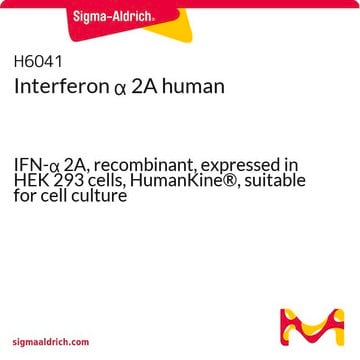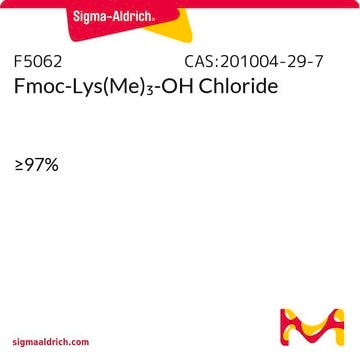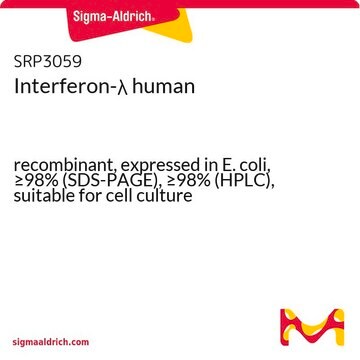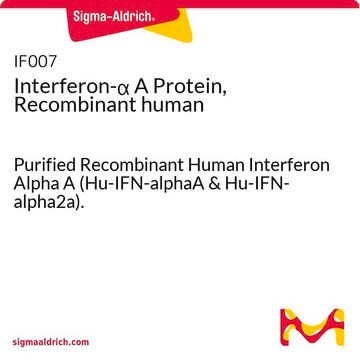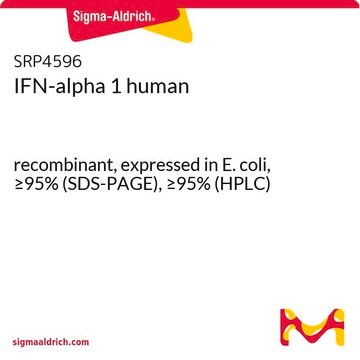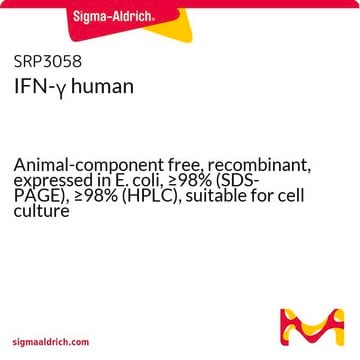H6166
Interferon α 2B human
HumanKine®, ≥95% (SDS-PAGE), recombinant, expressed in HEK 293 cells, lyophilized powder, suitable for cell culture
Synonym(s):
IFN α 2B, IFN Alfa 2b, INF α 2B, INF Alfa 2b, Interferon Alfa 2b
About This Item
Recommended Products
Product Name
Interferon α 2B human, IFN-α 2B, recombinant, expressed in HEK 293 cells, HumanKine®, suitable for cell culture
biological source
human
Quality Level
recombinant
expressed in HEK 293 cells
Assay
≥95% (SDS-PAGE)
form
lyophilized powder
potency
≤0.12 ng/mL EC50
quality
endotoxin tested
mol wt
dimer 16 kDa (glycosylated)
packaging
poly bottle of 10 μg (in poly bottle)
manufacturer/tradename
HumanZyme
technique(s)
cell culture | mammalian: suitable
impurities
≤1EU/mg
UniProt accession no.
storage temp.
−20°C
Gene Information
human ... IFNA2(3440)
General description
Biochem/physiol Actions
Physical form
Preparation Note
Analysis Note
Legal Information
Storage Class Code
11 - Combustible Solids
WGK
WGK 3
Flash Point(F)
Not applicable
Flash Point(C)
Not applicable
Choose from one of the most recent versions:
Already Own This Product?
Find documentation for the products that you have recently purchased in the Document Library.
Customers Also Viewed
Our team of scientists has experience in all areas of research including Life Science, Material Science, Chemical Synthesis, Chromatography, Analytical and many others.
Contact Technical Service